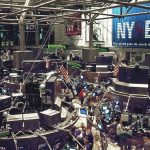Privacy Policy
This Privacy Policy describes how SmartMinds Enterprise OÜ (“Quark International”, “we”, “us” or “our”) handles information about yourself that you may provide us with through your use of the Site or Service (“Personal Information”) and should be read along with our Terms of Use posted here, and all other operating rules and additional terms and conditions published on our Site.
Quark International is committed to keeping your information secure and managing it in accordance with our legal responsibilities under privacy and data protection laws where we operate. Quark International uses your Personal Information only in accordance with this Privacy Policy and Applicable Law. Quark International does not sell your Personal Information to third parties. Any capitalized terms not defined in this Privacy Policy are defined in the Terms of Use.
Acceptance of Quark International Privacy Policy
- By using the Site and the Service you are deemed to have read and understood this Privacy Policy. Quark International reserves the right to update this Privacy Policy at any time by posting an updated version on the Site, and you are deemed to have read and understood the current version each time you use the Site. We encourage you to periodically review this page for the latest information on our privacy practices.
Personal Information We Collect from Users
- When you use the Site and Service, as is the case with most websites, certain limited information (such as your browser type and IP address) will be collected by us automatically.
- When you create an Account, we will collect basic contact information about you to set up your account so you can make donations or raise funds. This will include your name, address, and email address.
- Ask you to register a password to gain secure access to your account in the future.
- When you make a donation to the Quark International Fund, we will collect basic payment information. If you are eligible for UK Gift Aid, we may also ask you to confirm your UK home address.
- When you create an Account on Quark International for the purpose of listing a Project, we may ask, among other things, for your name, email address, postal address, phone number, bank account details, and password.
- You may decline to provide us with your Personal Information, but this may prevent you from using certain services.
How We Use Personal Information
-
- We may use Personal Information collected from users for a number of purposes: administering donations made;
- personalizing the look and feel of the Site and our communications with users to fit personal preferences which you have told us about, such as your donation history;
- providing Project Donors with updates on relevant Projects, including information: about their Outstanding Donations;
- about the Project Owner’s progress in achieving Project Goals;
- to help us prevent fraud associated with online payments;
- to carry out bank account verification and identity checking;
- providing information to Project Owners about Donations made to their Project(s), so they can track the total donations;
- providing service update emails regarding the Service and your specific account;
- improving our service – for example, you may be asked to complete one of our online user satisfaction surveys.
- We will not publicly display your name regarding donations you have made to a Project unless we have your permission to do so.
How We Share Personal Information with Project Owners
- If you donate to the Quark International Fund, the voted Project Owner will be provided with:
- the specified amount in the SmartContract and Challenge.
- With your explicit permission (e.g., with tick boxes), we may share your Personal Information with Project Owners so that they can send you correspondence about activities that are not directly connected to their Project listed on Quark International, including emails telling you more about their charity, and soliciting donations.
- If you receive any further correspondence from Project Owners in accordance with Clause 4.2.:
- it will not be governed by this Privacy Policy.
- It will be governed by their privacy policies (if applicable), and you may ask them to stop communicating with you by contacting them in accordance with the terms of their privacy policy (if applicable) and the relevant laws.
- We require all Project Owners to keep Personal Information we share with them safe and secure.
- When you donate to the fund, we may collect details of your physical address. This Personal Information will not be shared with the Project Owner or any third parties or displayed on the Site in a way that will allow others to identify you or your precise location.
Sharing Your Personal Information With Others
- We may provide Personal Information to:
- Companies that provide services to help with our business activities. These companies are authorized to use Personal Information only as necessary to provide these services to us and are obliged to keep our users’ Personal Information confidential;
- banks and payment providers – to authorize and complete payment transactions;
- third-party identity checking or credit reference agencies – for the purposes of identity checking and bank account verification;
- organizations within the payment card industry to help prevent online fraud;
- If Quark International is involved in a merger, acquisition, or sale of all or a portion of its assets, your Personal Information will be shared with the relevant co-party.
- When we provide Personal Information to these third parties, it is possible that this will involve transferring your Personal Information to countries outside the European Economic Area (“EEA”). Where this is the case, we will ensure that there are measures in place so that your Personal Information has an adequate level of protection.
Communications From Us
- Where you have indicated you would like to receive updates, we may send marketing in the form of email alerts and newsletters to tell you about developments in the Service. To do so, we will use your personal preferences, which you have told us about, which we have derived from Cookies (see Section 9 below) and/or which we have inferred from your
use of the Service or market research.
- You can unsubscribe from receiving certain electronic messages by following the “unsubscribe” instructions included in our communication.
Legal Obligations
- We keep records of your Personal Information for as long as required to operate the Service in accordance with legal, tax, and accounting requirements. Where your information is no longer required, we will ensure it is disposed of in a secure manner.
- Quark International will comply with any legal obligation or court order, and where we are otherwise requested to provide information, we may provide it to law enforcement bodies but only in accordance with applicable privacy and data protection laws;
- You have the right to request a copy of the Personal Information we hold about you.
- Such requests should be addressed to Quark International here.
Keeping information secure
- We invest significant resources to protect your Personal Information from loss, misuse, unauthorized access, modification, or disclosure. However, no internet-based site can be 100% secure, and we cannot be held responsible for unauthorized or unintended access that is beyond our control.
Analytics and social media plugins
- We use analytics tools on our website to provide the service you request, identify service issues to us, improve our services and to provide content tailored to users’ personal preferences and profiles.
- These tools may be provided by third-party service providers and may include the collection and tracking of certain data and information regarding the characteristics and activities of visitors to the Site.
- We may disclose data, including personal information, to certain such third-party services providers in order to obtain such services.
- If you use buttons on our website linked to social media or similar sites (for example “Share” buttons), content from our website may be sent back to that other website and, depending on your privacy settings, may be privately or publically visible (for example to friends, followers or generally to anyone who has access to your profile
page).
- You may request further details on these other tools and third parties from us by contacting us here.
Cookies
- Our website uses cookies (which includes third party cookies to support social media, personalization, and analytics functionality).
- Cookies are small computer files which are downloaded onto your device and collect information about the way in which you navigate and use the Site and the internet. Cookies do not collect information which allows us to identify individual users.
- The information provided by cookies helps us to provide you with a more personal experience and allows us to make improvements to our services over time.
- You may delete and block all Cookies or decide to just block certain types of cookies via your browser setting. However, if you choose to block or delete Cookies, this may affect the functionality of the website.
Questions
- For further information about our Privacy Policy, please contact us here.



